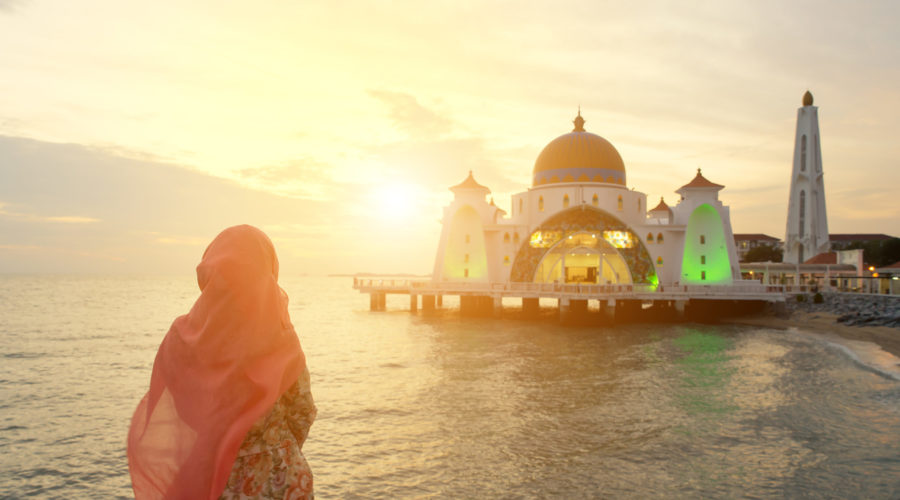Shebs Alom
As we begin 2025, the halal travel sector is poised for a year of transformative growth. I want to introduce myself, Shebs Alom, as a new member of the Halal Travel Network and my role in helping make the halal travel sector even stronger in 2025. I joined it with increasing emphasis on wellness, cultural immersion, and sustainable tourism this year. Our aim is to lead the way in creating enriching experiences for travellers worldwide.
Hafsa Gaher, CEO of The Halal Travel Network, shares her vision: “In terms of trends for the year ahead, I would like to draw some parallels between halal tourism and wellness tourism. The alcohol-free environment, general wellbeing, and spiritual focus align perfectly with emerging halal destinations. This also feeds neatly into sustainable tourism by integrating local communities and celebrating heritage.”
A Core Trend for 2025

Wellness tourism is becoming a prominent focus in halal travel. The trend reflects an increasing desire for places that nurture the mind, body, and spirit. This includes alcohol-free areas, healthy halal cuisine, spiritual settings, and activities like yoga and meditation. Muslim travellers are increasingly drawn to places that provide leisure and spiritual reflection opportunities. For instance, visiting historical mosques, engaging with local communities, and participating in cultural events offer meaningful ways to connect with one’s faith whilst exploring new cultures.
Amy Aed, a Welsh journalist, highlights her positive experiences in Muslim-majority countries: “I feel more comfortable in Muslim countries than in some non-Muslim ones. The safest I’ve ever felt was in Saudi Arabia. Despite the way Western media often portrays these countries, I’ve found them to be places where I felt respected, comfortable, and taken care of.”
This sentiment is echoed by so many I spoke to across the U.K. Emily Hardy, an art teacher in Sheffield, relays her partner Jack’s experiences in Oman: “He found Oman incredibly welcoming. As a Westerner, he was often invited into homes for tea and snacks. He also appreciated the culture of respecting elders, which was deeply engrained in the community.”
Val Basnett, a retired grandmother living in Manchester, explained to me the highlights of her visit to the cultural richness of Istanbul, emphasising the immersive experience of observing local life and visiting historical sites: “We loved it, to be honest, probably because part of travelling means you get to observe other cultures. I'm sure we missed lots of differences as we were focused on not just people but places of interest, e.g., Blue Mosque, Topkapi Palace, Bosphorus, Grand Bazar, etc. and the history of Istanbul… Listening to prayers in Istanbul was fascinating and calming for me.”
Halal Travel Agencies Respond

The growing demand for halal-friendly travel has also prompted travel agencies to adapt their services. Whilst some larger agencies, like Flight Centre, Kuoni Travel, and Hays Travel, with whom I spoke to their agents these past few days, admit they don’t specialise in halal travel packages – smaller, more specialised agencies like Regents Holiday and Halal Booking are already well-positioned to cater to this market.
Halal Booking, for instance, told me they have been specialising in halal travel for 15 years and boast a strong reputation, offering services to destinations worldwide. One can only wonder why other travel agents aren’t doing the same. Are they not missing out?
Emerging Destinations

As wellness tourism gains traction, halal travel offers a lot for emerging markets. Destinations such as Saudi Arabia, which Amy Aed mentioned, with its burgeoning tourism initiatives, and lesser-explored regions in Africa, Europe and Central Asia are poised to attract wellness-oriented travellers. The concept of wellness is deeply rooted in the values of halal travel.
For instance, when I visited the serene landscapes of Uzbekistan back in November 2024 and the vibrant cultures of Malaysia in 2014, they offered opportunities to unwind whilst exploring rich Islamic heritage.
A Holistic Approach to Travel

The focus on wellness in halal travel extends beyond providing halal cuisine and prayer facilities. It encompasses a holistic approach to emotional, physical, and spiritual wellbeing.
As Hafsa Gaher emphasises, “Quality over quantity will define our approach in 2025.”
She also explains, “For our personal growth, we aim to work with destinations around the world and offer our support widely.” Our commitment to quality will ensure that Muslim travellers have access to authentic and heightened experiences, with 2025 promising to be an impactful year for halal and wellness tourism.
Stay tuned for updates from the Halal Travel Network as we embark on this transformative journey together.
Stay Connected with the Halal Travel Network
Stay ahead—be the first to hear about our upcoming industry events, exclusive networking opportunities, and the latest halal tourism insights.
Don’t miss out—subscribe to our newsletter below for exclusive updates on the future of halal travel.
About the Author
Shebs Alom